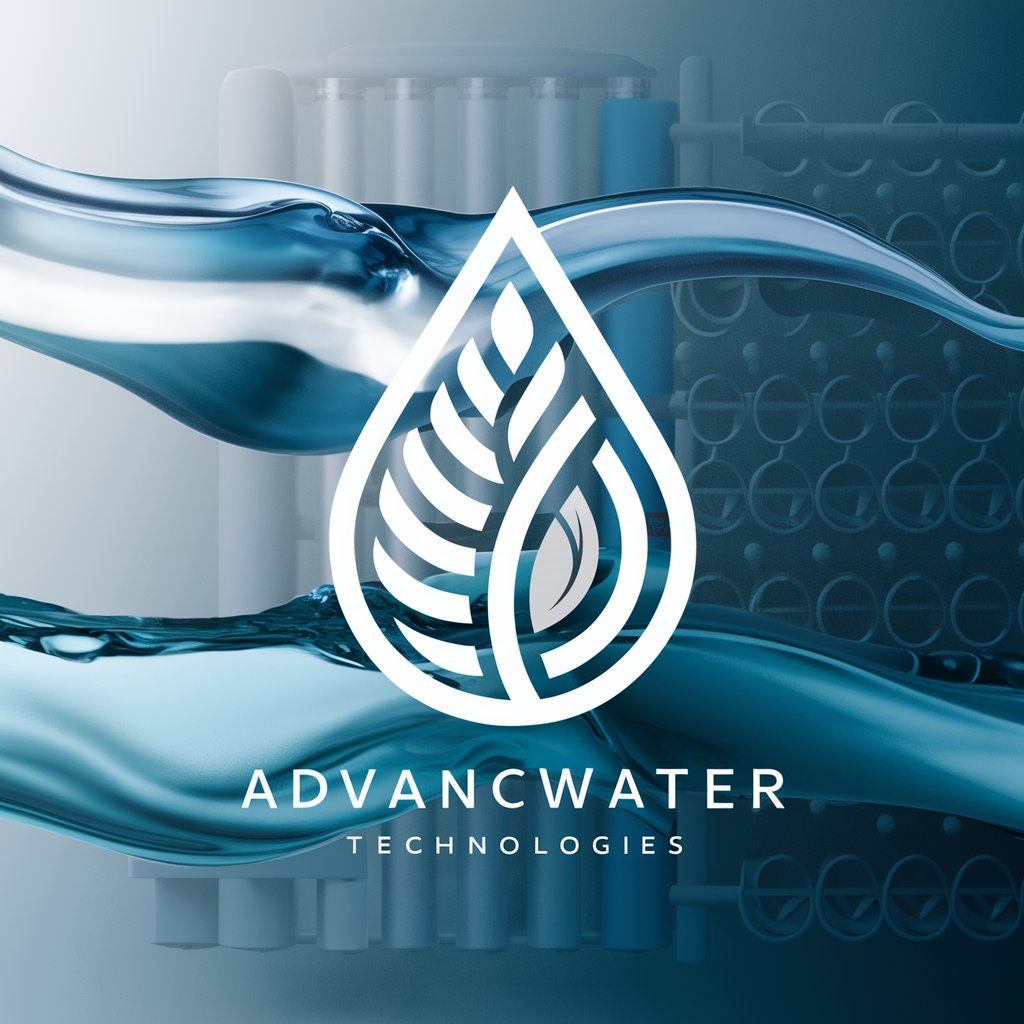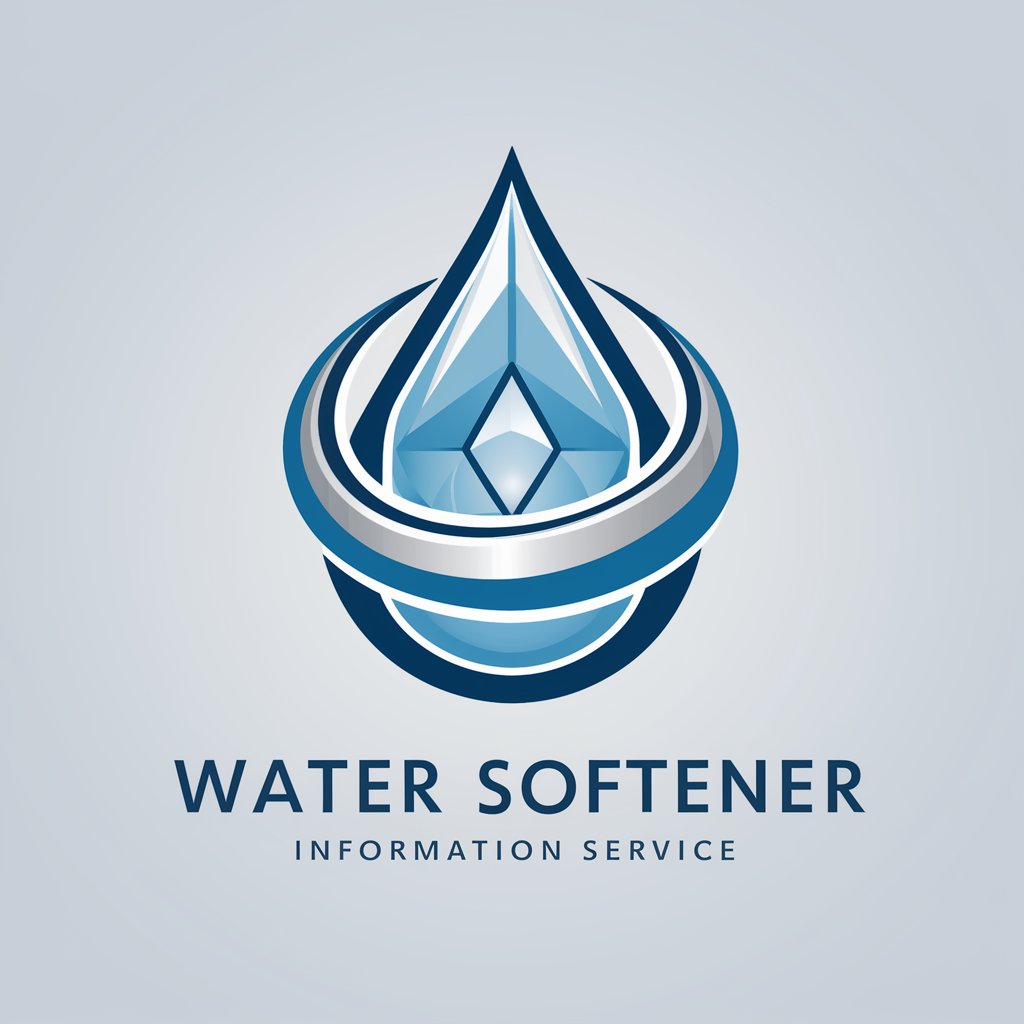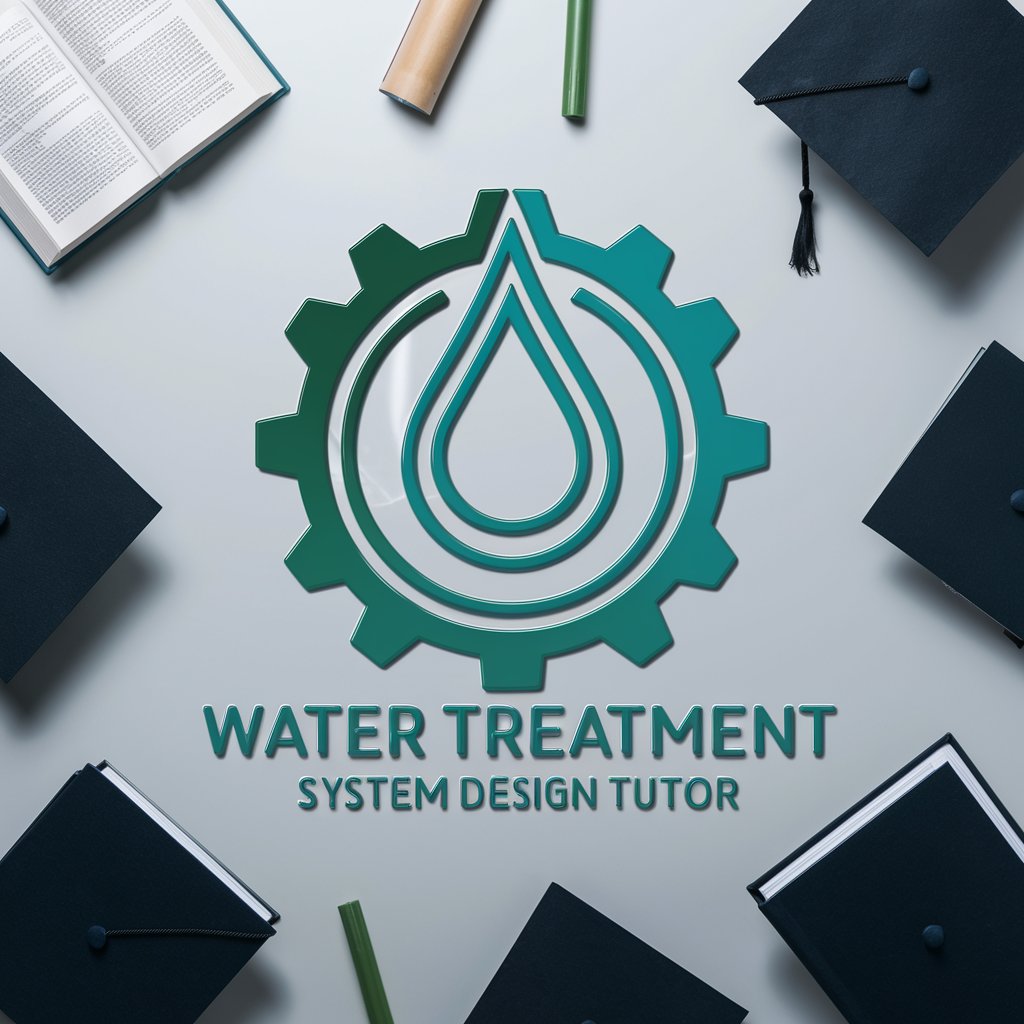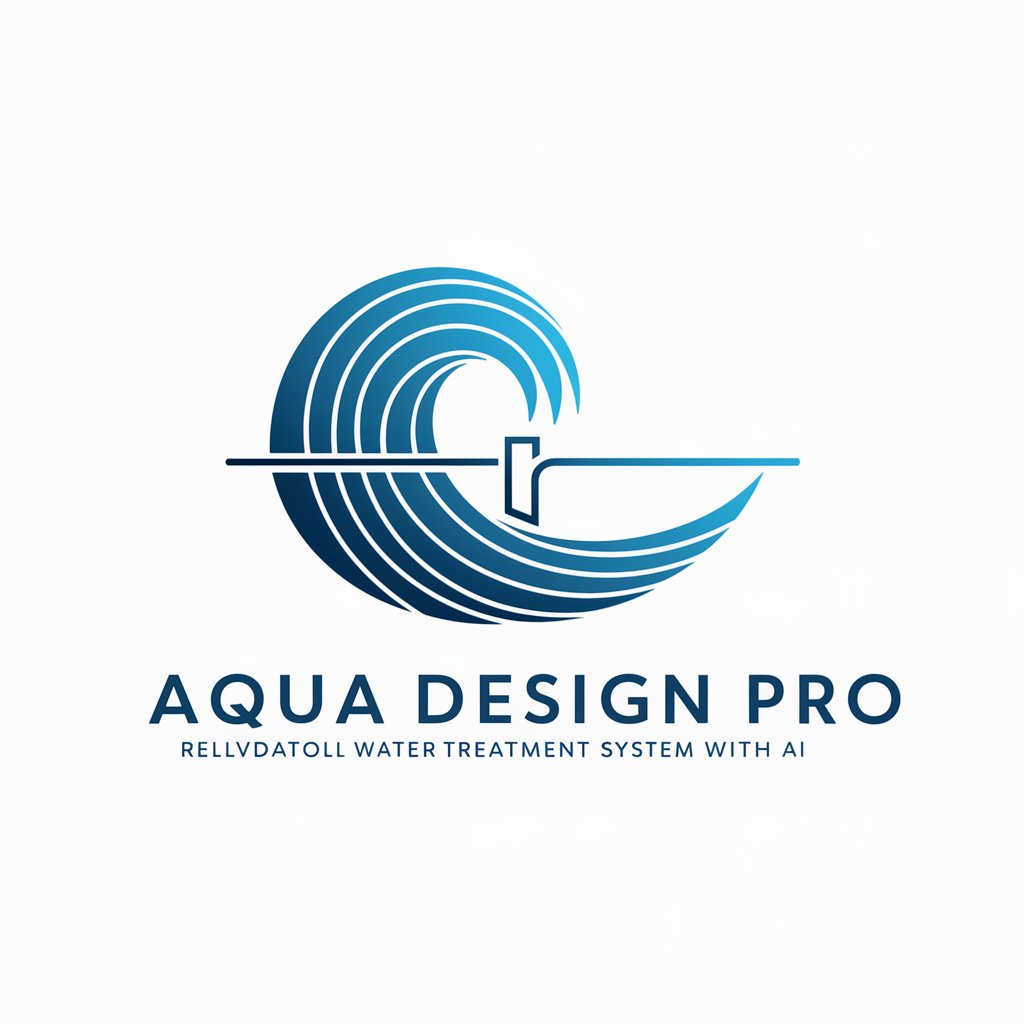
Water Softener - Water Softening Guidance
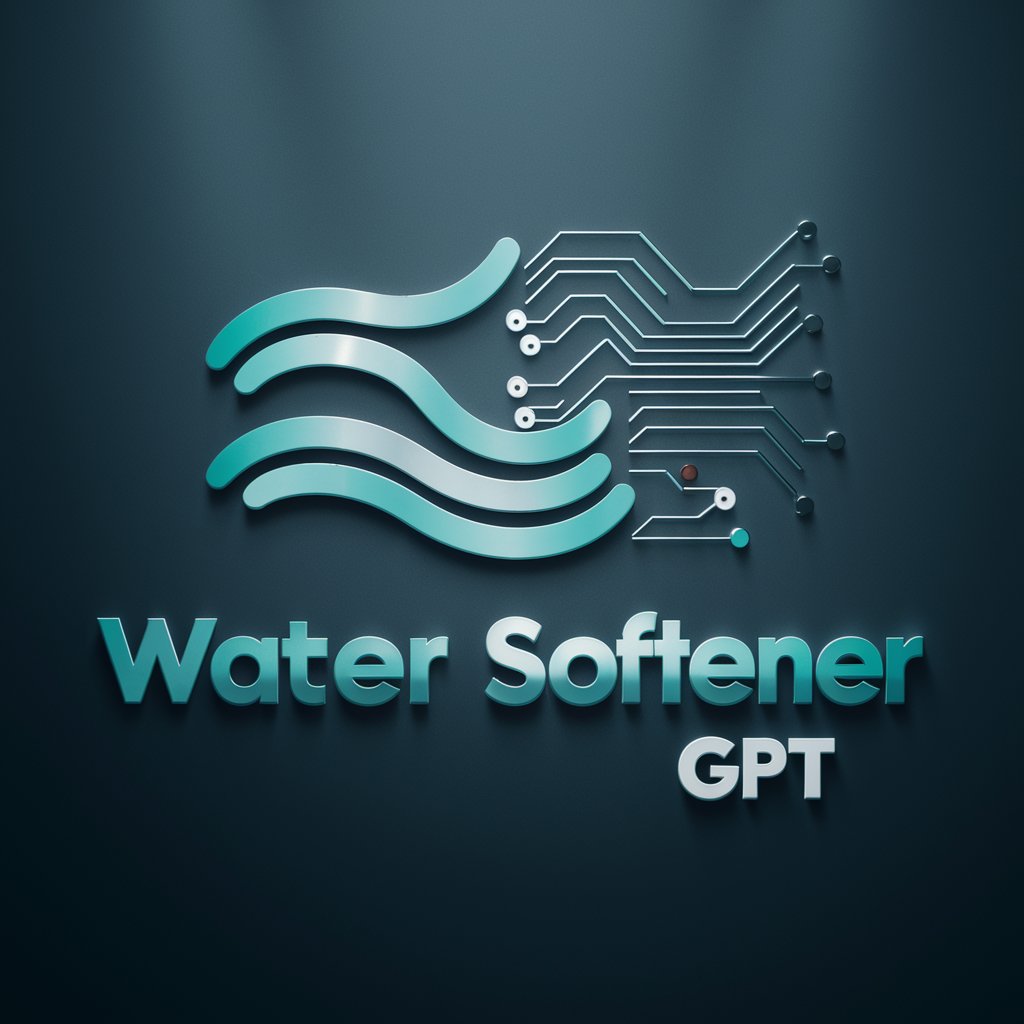
Welcome! How can I help you with water softening today?
Enhance water quality with AI-driven advice
How do water softening systems improve water quality?
What are the benefits of using a water softener in a home?
Can you explain the technical aspects of water softeners?
What are the common issues with hard water and how can they be resolved?
Get Embed Code
Overview of Water Softeners
A Water Softener is a specialized filtration system designed to remove or neutralize calcium and magnesium ions in hard water, which are primarily responsible for water hardness. By exchanging these hardness ions with sodium or potassium ions through a process called ion exchange, water softeners transform hard water into soft water. This process not only extends the lifespan of plumbing and appliances by preventing scale buildup but also enhances the effectiveness of soap and detergents by eliminating mineral interference. For example, in areas with hard water, residents often notice a significant improvement in the quality of their laundry, the feel of their skin and hair, and the overall taste and clarity of their water after installing a water softener. The design purpose of water softeners is centered around improving daily living quality, protecting household appliances, and ensuring efficient use of soaps and detergents. Powered by ChatGPT-4o。

Core Functions of Water Softeners
Ion Exchange Process
Example
A family living in an area with hard water notices scale buildup on their faucets and poor performance of cleaning agents. After installing a water softener, the ion exchange resin inside the softener swaps the calcium and magnesium in their water with sodium, effectively softening the water.
Scenario
This process is crucial in areas with naturally hard water, preventing scale buildup and improving the efficiency of water-using appliances.
Protection of Plumbing and Appliances
Example
A coffee shop in a hard water region experiences frequent breakdowns of their espresso machines due to scale. After integrating a water softener, the softened water prevents scale, extending the machines' lifespan and maintaining coffee quality.
Scenario
Businesses relying on water-intensive appliances benefit greatly from softened water, which reduces maintenance costs and downtime.
Enhanced Effectiveness of Soaps and Detergents
Example
Residents of a high-rise apartment complex complain about the poor lathering of soap and inefficiency of detergents. The installation of a central water softening system improves soap lathering and detergent effectiveness, leading to happier tenants and cleaner clothes and dishes.
Scenario
Apartment complexes and hotels can improve tenant and guest satisfaction by ensuring water quality that supports better personal and laundry care.
Target Users of Water Softener Services
Homeowners in Hard Water Areas
Individuals living in regions with high concentrations of calcium and magnesium in the water benefit from water softeners by protecting their plumbing, improving water quality for drinking and cleaning, and enhancing the overall longevity of household appliances.
Commercial Establishments
Businesses such as laundromats, cafes, and hotels, where water usage is high and the quality of water can directly impact service quality and appliance efficiency, find great value in water softening systems to reduce maintenance costs and improve customer satisfaction.
Industrial Facilities
Facilities that rely on large-scale water usage for processes such as manufacturing, cooling, or cleaning equipment can benefit from water softeners to prevent scale buildup in machinery, thereby optimizing operational efficiency and reducing downtime.

How to Use Water Softener
1
Visit yeschat.ai to start a free trial instantly, without the need for signing up or subscribing to ChatGPT Plus.
2
Identify the hardness level of your water supply. This information can guide the settings for your water softener, ensuring efficiency and optimal performance.
3
Install the water softener according to the manufacturer's instructions or hire a professional. Ensure it's connected to your main water supply to treat water as it enters your home.
4
Regularly refill the salt in the brine tank. This is crucial for the ion exchange process that removes minerals causing hardness from the water.
5
Perform routine maintenance checks. Monitor the system for any signs of malfunction and conduct periodic cleaning to prevent salt bridges and resin bed blockages.
Try other advanced and practical GPTs
Cinematic Movie Script Kit
Unleash Your Story's Potential with AI

Frappe Developer
Powering Frappe Development with AI

Turbo Keyword Tool
Unveil Your Niche's Keywords with AI

LaravelGPT
AI-powered Laravel Development Assistant

Aglo Systems Copywriter
Illuminate Your Content with AI

Software Architect
Architecting the Future of Software Development

Bonvivant
Embrace the Art of Living Well, AI-Powered

NYC Tourism
Explore NYC with AI-powered insights

Expert videos
Elevate Your Videos with AI

Assistente SEO Video
Elevate Your Video Content with AI-Powered SEO

Creative Course Designer
Empowering educators with AI-driven creativity

Vue 2 and PHP Expert
Empowering Web Development with AI

Water Softener Q&A
What is a water softener and how does it work?
A water softener is a device that removes minerals causing hardness, like calcium and magnesium, from water. It works through a process called ion exchange, where hard minerals are replaced with sodium ions.
Why is water softening important?
Softening water prevents scale buildup in pipes and appliances, enhancing their longevity and efficiency. It also improves water quality for washing and reduces soap usage.
Can a water softener improve skin and hair health?
Yes, using softened water can lead to softer skin and smoother hair by preventing the drying effects of hard water minerals.
How often should I add salt to my water softener?
The frequency depends on your water usage and the hardness level. Typically, checking the salt level monthly and refilling as necessary is recommended.
Is softened water safe to drink?
Yes, in most cases, though it contains a higher sodium content than hard water. For those on a low-sodium diet, an alternative source or a potassium chloride salt substitute might be considered.
